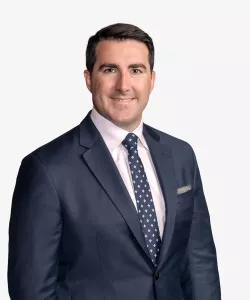New FCA Filings Point to Future Path Forward For Companies
Headlines that Matter for Companies and Executives in Regulated Industries
New FCA Filings Point to Future Path Forward For Companies
The US Supreme Court recently ruled in United States ex rel. Proctor v. Safeway Inc. and United States ex rel. Schutte, et al. v. SuperValu Inc. et al. that liability under the False Claims Act (FCA) must be premised on an assessment of a defendant’s subjective beliefs, not what an objectively reasonable person may have known or believed — about potential wrongdoing. In subsequent legal filings, the FCA defense bar has started looking for paths forward for companies facing government investigations under the FCA.
See our previous discussion of this topic here.
In some of these “test” cases, defendants have focused on the precise meaning of recklessness when evaluating a defendant’s scienter under the FCA. This line of argument draws on the Court’s main holding from SuperValu. In other cases, defendants have posited that the SuperValu scienter standard is also relevant in resolving retaliation claims under the FCA.
Another notable theory proffered by the defense bar in the wake of SuperValu is a so-called “three-part” test premised on the Court’s holding that scienter requires a defendant to be “conscious of a substantial and unjustifiable risk.” Here, some defendants have broken down this holding into three distinct elements: (1) consciousness of a risk that is both (2) substantial and (3) unjustifiable. Advocates of this theory have asserted that plaintiffs must show each element to meet their pleading burden. (As discussed below in greater detail below, the US Department of Justice (DOJ) has already has balked at this proposed three-part test.)
Notably, in at least one case involving allegations against Teva Pharmaceuticals arising under the Anti-Kickback Statute, the DOJ has pointed to SuperValu to assert that a circuit split between the Third Circuit and the Eighth and Sixth Circuits regarding causation resulting from kickbacks should be resolved in favor of the government. Additionally, SuperValu’s impact is also radiating out to whistleblower retaliation cases under the FCA, where litigants have asserted that SuperValu’s scienter standard also applies. Like the other theories proffered by the defense bar, this theory remains untested and SuperValu’s ultimate impact, though long anticipated, is far from settled.
Law360’s analysis is available here.
DOJ Balks at Three-Part Test Proffered by Defense Bar Following Landmark Supreme Court FCA Case
As described above, following SuperValu and Safeway, litigants in FCA cases are pivoting to apply the Court’s landmark holding. In one such pivot, some defendants have asserted that SuperValu’s intentionality standard requires a three-part showing: (1) consciousness of a (2) substantial and (3) unjustifiable risk. In at least one whistleblower case in Virginia federal court, the defendant — the drugmaker, Indivior — has advanced the argument that the court in SuperValu actually intended to impose a more defense-friendly view of the FCA by requiring plaintiffs to show each of the three elements of the purported test.
In a statement of interest filed in the district court, the DOJ soundly rejected this theory. Per the DOJ, nothing in the Court’s recent line of cases (let alone the SuperValu or Safeway cases themselves) was intended to place additional or more restrictive pleading hurdles on whistleblowers and government intervenors when attempting to establish reckless disregard under the FCA. Similarly, the whistleblower in the case – who previously served as a senior financial analyst at what is now known as Indivior – also rejected that notion. They argued that had all nine justices of the Supreme Court intended to implement a three-part test, they would have done so explicitly. The district court has yet to decide on the proposed three-part test, but however the court ultimately rules, parties will no doubt continue to grapple with the effects of both the Safeway and SuperValu cases.
Law360’s analysis is available here.
Supreme Court Tees Up First Test of FCA Intentionality Standard
The Supreme Court recently issued a unanimous order remanding cases against Allergan and Abbott Laboratories back to the Fourth and 11th Circuits for further consideration following their recent pivotal rulings in the Safeway and SuperValu cases.
In the Fourth Circuit case, whistleblowers in Maryland alleged that Allergan overcharged Medicaid by more than $680 million by falsely reporting drug pricing information. The district court originally dismissed the case, and the Fourth Circuit affirmed. Subsequently, an en banc panel reviewing the Fourth Circuit’s decision, vacated the prior panel opinion, and directly affirmed the district court’s dismissal.
Similarly, in the 11th Circuit case, whistleblowers in Florida alleged that Abbott committed numerous regulatory violations in connection with Medicare beneficiaries. The district court dismissed that case as well, and the 11th Circuit affirmed, ruling that the plaintiffs had failed to allege sufficient scienter. The whistleblowers in both cases subsequently petitioned the Supreme Court for review, and both cases were paused pending the outcome of the Safeway and SuperValu cases.
In light of its decisions in Safeway and SuperValu, the Supreme Court remanded both cases for further proceedings.. In remanding the cases, the Court has teed up some of the first cases testing the new standard on the meaning of intentionality in connection with fraud under the FCA. The ultimate outcome of these cases – and the broader contours of liability under the FCA described above – remain to be seen.
Law360’s analysis is available here.
Contacts
- Related Practices




